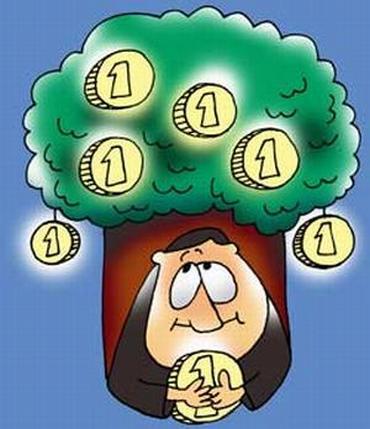
Fixed deposits, the integral part of our financial system, has been a favourite with our grand parents and even parents. They invested their hard earned money in FDs to meet the expenses of their children's education, marriage, buying a house or even meeting some medical emergencies.
As times changed many more financial instruments made way to the market and instantly gained popularity with investors especially with slightly bigger risk appetite.
Fixed deposits (FDs) never lost their sheen and have always remained a favourite with investors particularly those who do not have high-risk appetite. Banks, post offices and corporate entities usually issue FDs. But the safest and most popular are the ones administered by banks.
The reason for their popularity is that investors in India find banks very convenient to deal with. These deposits are perceived to be highly safe and sufficiently liquid.
Not only this, FDs can help you secure your hard earned money for a long duration while giving you higher risk-free returns on your money than a regular savings account. But the biggest advantage is that the FDs from reputed banks are very safe as the Reserve Bank of India carefully regulates the banks.

FDs are fixed-income debt securities issued by banks. Putting money into a FDs is like giving a loan to the bank, in return for which the bank pays you interest. This interest may be payable at regular intervals during the term of the deposit or on withdrawal. The date of maturity of the fixed deposit is established when the contract is concluded.
Indian banks offer a wide variety of fixed deposit schemes to suit almost every need. FD is an account that allows you to deposit your money for a fixed period of time, earning you interest at a fixed rate. It gives you a higher rate of interest than a savings bank account.
You can get a bank FD from any nationalised, private or cooperative bank. You have to open a fixed deposit account with the bank to make the deposit. Many banks ask you to maintain savings account with banks to operate a fixed deposit account. When you open the fixed deposit account, you are issued a deposit receipt or an account statement. This statement can be updated, depending on the duration of the fixed deposit and the frequency of interest calculation.
Apart from the fixed rate of return on your FD investment, you can withdraw the FD at any time before maturity without any difficulty. You can avail loans up to 85 per cent of the principal, that is, the amount you invested in the FD.
You can also avail of a loan with overdraft facility from the bank against the FDs.
If you are a senior citizen then you will get higher interest rates. Also you can select the time interval (periodicity) of interest payout which can be like quarterly, half yearly or annually. This option is especially useful for senior citizens.
FDs also come with nomination facility and it is always good to appoint a nominee who can be your family member. You will have to make this nomination at the time of opening the FD account. Remember that nomination can be made in favour of only one individual. You can even change your nominee midway through the fixed tenure by filling a simple form.
When we say FD is a liquid instrument, it implies that you can break the investments even before it matures in no time which is also termed as 'premature withdrawal'. But in the event of breaking the FDs prematurely, you will lose interest. Not only this, the bank may also charge penal interest on the premature withdrawal. So it is advisable to check the penal rate along with deposit rate at the time of opening of fixed deposit.

Tax is deducted at source on the interest earned, if the interest earned is more than Rs 10,000 in a financial year on all FDs made across all branches of a single bank. Notified bank FDs of a period of five years only qualify for tax deduction under section 80C of Income Tax Act, 1961.
But, but... FDs have their flip side too. Particularly if you have a higher risk appetite then returns may not look too lucrative to you. The returns here are not comparable to investment in equity markets.
Moreover, a fixed deposit also doesn't offer protection against inflation. If inflation rises steeply during the maturity of the FD your inflation adjusted return will fall.
But as a good investor you should follow an investment strategy that is a mix of safe and risky investments. And among safe investments FDs indeed tops the charts.